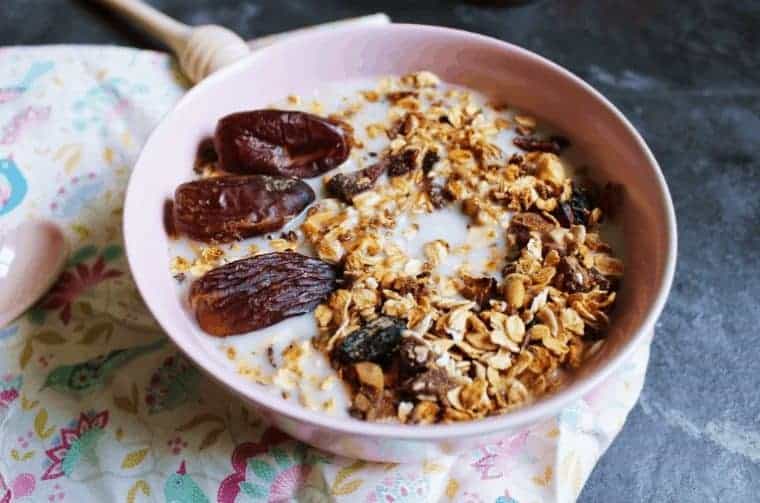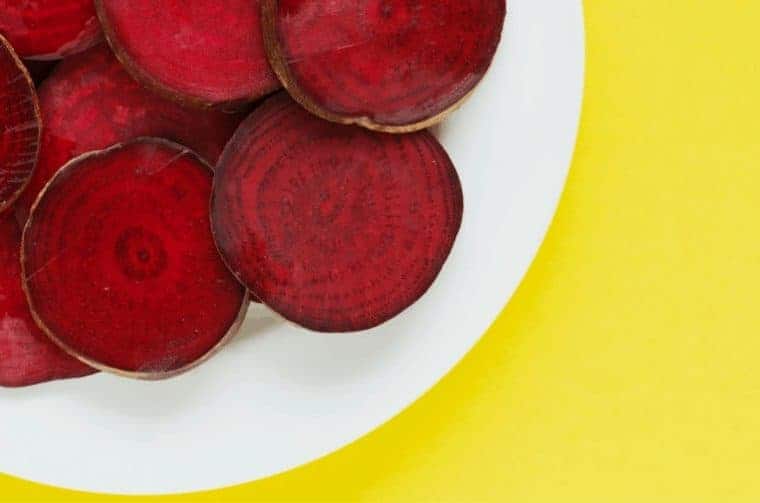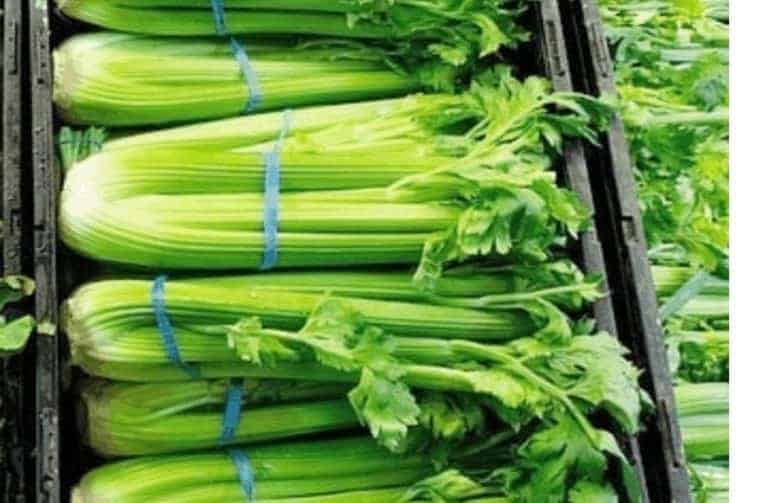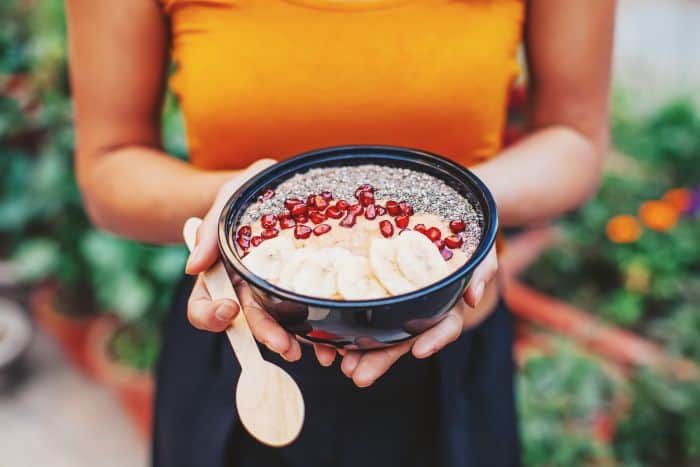Firstly, it’s important to acknowledge that everyone is unique and beautiful in their own way, and there is no one-size-fits-all standard for the “perfect” body. However, if you are someone who wishes to maintain their weight or even shed a few pounds without sacrificing your love for indulgent snacks, we’ve got you covered!
In fact, you might be surprised to learn that the key to achieving your weight goals doesn’t always have to involve depriving yourself of food or drastically reducing your portion sizes. By following the tips and tricks shared by top models, you can discover a range of delicious foods that are not only satisfying but also help you stay on track with your weight management journey. So whether you’re striving to maintain your current weight or slim down for the upcoming beach season, these food options can be your ultimate ally in achieving your goals.
Moreover, with the variety of foods available out there, it’s possible to find options that are both tasty and low in calories, making them the perfect choice for any dieter or weight watcher. By incorporating these foods into your diet, you can enjoy bigger portions of your favorite snacks without worrying about gaining weight. So why not explore these scrumptious options and see for yourself how you can indulge in your love for food while still maintaining a healthy lifestyle?
Pineapple
Pineapple, known as the “king of fruits” for its crown-like appearance, is not only a delicious tropical fruit but also a symbol of holiday and freedom. Apart from its sweet and tangy taste, pineapples are packed with essential nutrients that are beneficial to our health. One of the notable nutrients found in pineapples is manganese, which is believed to assist the body and muscles in metabolizing protein from our diet. This process is crucial for maintaining weight control and promoting overall health. Moreover, pineapples are a rich source of Vitamin C, a powerful antioxidant that helps boost the immune system and protect the body from harmful free radicals. It is recommended to consume fresh pineapples to reap the maximum nutritional benefits, and a serving of 100 grams or 3.5 ounces contains only about 50 kilo calories.

Apart from its nutritional benefits, pineapples are also versatile and can be used in various ways in cooking. From adding them to shakes, grilling, using as pizza topping, to incorporating them into summer salads and chicken dishes, there are endless possibilities to explore. If you have been avoiding pineapples in your diet due to the misconception that fruits are high in sugar, it’s time to reconsider. While it’s true that fruits contain natural sugars, they are also loaded with essential vitamins, minerals, and fiber that are vital for maintaining good health. So, don’t be afraid to include pineapples in your diet and explore new and exciting ways to enjoy this tropical fruit.
Eggs
The trend of keeping backyard chickens has become increasingly popular in recent times, and it’s not hard to see why. With the satisfaction of obtaining fresh eggs daily, people are willing to put in the effort to care for these feathered friends. In addition to their appeal as pets, eggs from backyard chickens are a fantastic source of protein, which is essential for maintaining energy levels and promoting a feeling of fullness. Whether boiled or poached, eggs are an excellent food choice for individuals looking to manage their weight. It’s worth noting that for optimal health benefits, it’s best to enjoy eggs without added butter or cream.

Eggs are a nutrient-dense food that contains several essential vitamins and minerals in significant amounts. When boiled, they provide a good source of vitamins A, B12, and D, riboflavin, choline, phosphorus, zinc, and pantothenic acid. However, it’s important to keep in mind that cooking methods can have an impact on the nutritional value of eggs. The yolk, in particular, is a rich source of cholesterol, containing more than two-thirds of the recommended daily intake of 300 mg. Despite this, one egg weighing 50 grams only contains about 80 kilo-calories, making it a relatively low-calorie food choice that’s both delicious and nutritious.
Popcorn
When referring to popcorn, it is important to distinguish between the artificially flavored popcorn that is commonly sold at state fairs and movie theaters, and the natural, air-popped popcorn. Air-popped popcorn is a highly nutritious snack that is rich in dietary fiber and antioxidants. Furthermore, it is low in calories and fat, and free of sugar and sodium. As a result, individuals who have dietary restrictions on the intake of calories, fat or sodium may find air-popped popcorn to be an ideal snack.

However, the flavor of air-popped popcorn can be enhanced by adding large amounts of fat, sugar, and sodium. This can significantly increase the calorie and fat content, making it an unhealthy choice for individuals with dietary restrictions. On the other hand, consuming one cup (approximately 8 grams) of air-popped popcorn without any added fats, salt, or sugar provides only 45 kilo-calories, making it an excellent snack for individuals who are health-conscious. Thus, it is important to be aware of the nutritional value of popcorn and to choose the healthiest option when indulging in this tasty treat.
Eggplant
Eggplant, also known as aubergine, is a nutritious vegetable that is high in fiber and water content, but low in calories. However, before consuming eggplant, it is important to cook it first, either by baking or grilling it with little or no added oils, as it contains small bitter pits that can make it unappetizing. The eggplant is believed to have originated in India and has been cultivated in southern and eastern Asia for centuries.

The first written record of eggplant is found in the ancient Chinese agricultural treatise, Qimin Yaoshu, which was completed in 544. Since then, eggplant has become a popular vegetable in many cultures and cuisines around the world. It is a great addition to any salad, sandwich or main course. One hundred grams, or 3.5 ounces, of eggplant contains only about 25 kilo-calories, making it an excellent choice for individuals who are looking to maintain a healthy weight or reduce their calorie intake. Thus, incorporating eggplant into your diet can provide numerous health benefits while adding flavor and variety to your meals.
Cold / Hot Brew Coffee
Before you head out to grab your pumpkin spice latte, consider the benefits of coffee in its pure brewed form. Coffee is a beverage that is rich in antioxidants and nutrients, which can improve overall health. According to legends, coffee was discovered around 800 A.D. when sheep herders noticed the stimulating effects of the plant on their sheep.

Today, Brazil produces a third of the world’s coffee, while Hawaii and California are the primary producers of coffee in the United States. Coffee is a staple in many people’s daily routine, providing a much-needed energy boost to get through busy workdays and early mornings. Additionally, pure brewed coffee is low in calories, making it a great choice for those who are health-conscious. However, it is important to note that the addition of sugar and milk can significantly increase the calorie count of coffee. Therefore, it is recommended to enjoy coffee in its pure brewed form or with a small amount of milk or sweetener to minimize the calorie intake. So, go ahead and savor your favorite brew, and reap the many benefits that coffee has to offer.
Oatmeal
Oatmeal, a type of porridge or hot cereal, is a popular breakfast choice among athletes and nutritionists due to its filling properties and numerous health benefits. It ranks third on the satiety index, primarily due to its high fiber content and ability to absorb water. It is also a common ingredient in baby food as it is believed to aid in inducing better sleep patterns in infants.

Oats are an excellent source of soluble fiber known as beta-glucan, which can help slow down the digestion and absorption of carbohydrates. This means that consuming oatmeal in the morning can provide a sustained source of energy throughout the day, reducing the temptation to snack on unhealthy, salty treats during the midday slump. Additionally, oatmeal is easy to prepare and can be made in a variety of ways, making it a versatile and convenient option for breakfast or snacks. By incorporating oatmeal into your diet, you can benefit from its high fiber content and numerous health benefits, including improved digestion, reduced cholesterol levels, and better overall health.
Cabbage
Cabbage is an incredibly versatile ingredient that is frequently used in many oriental kitchens. Whether you need a quick salad or want to add some color to your dining table, cabbage is a great choice. It’s easy to chop, dice, and cut, and can be served raw or cooked. With only 22 calories per cup, cabbage is an ideal ingredient for anyone who wants to eat healthily or maintain a low-calorie diet. Additionally, it is a great ingredient for those who love to take pictures of their meals, as it always looks visually appealing.

Apart from its delicious taste, cabbage is also packed with numerous health benefits. It contains high amounts of Vitamin C, which helps to eliminate toxins from the body, prevent dermatology diseases, and even rheumatism. If you’re looking for even more Vitamin C, consider using red cabbage instead of the regular green variety, as it has double the amount of this essential nutrient. Overall, cabbage is a superfood that everyone should incorporate into their diets for optimal health and nutrition.
Blueberries
Blueberries are a highly-regarded fruit, with their impressive antioxidant content being their main claim to fame. They are a healthy food choice, with a cup of blueberries containing 14% of your recommended daily fiber intake and only around 85 calories. It’s no surprise that people have been enjoying blueberries for over 13,000 years, given their delicious taste and numerous health benefits.

Whether you enjoy them as a standalone snack, toss them in a salad, or add them to your favorite baked goods, blueberries are an excellent choice for a tasty and nutritious treat. So next time you’re looking for a healthy snack option, reach for a handful of blueberries and enjoy all the benefits they have to offer.
Beetroot
Beetroot, with its deep purple roots, is a highly versatile vegetable that can be eaten in a variety of ways. It can be boiled, roasted, or eaten raw, either on its own or in combination with other salad vegetables, simply by adding a squeeze of lemon and drizzling some olive oil. A significant portion of beetroot’s commercial production is processed into boiled and sterilized beets, or pickled. In Eastern Europe, beet soup, such as borscht, is a popular dish, while in Indian cuisine, chopped, cooked, spiced beet is a common side dish.

Aside from being a notoriously stubborn stain, beetroot is packed with essential minerals, nutrients, and water content, making it an ideal ingredient for a healthy juice. Beets are a rich source of manganese and magnesium, which help regulate blood sugar levels and support muscle and nerve function. In fact, raw beetroot is 88% water, 10% carbohydrates, 2% protein, and less than 1% fat. A 100-gram serving of beetroot contains approximately 40 kilocalories, making it a low-calorie, nutrient-rich food that is perfect for anyone looking to eat healthily.
Salmon
It’s no wonder bears go to great lengths to catch fresh salmon whenever they can. This fatty fish is not only incredibly delicious, but it’s also incredibly healthy and satisfying, keeping you full for many hours with relatively low calories. Salmon is loaded with high-quality protein, healthy fats, and various important nutrients, making it a staple in many healthy diets.

In addition to being a good source of protein, salmon is also loaded with omega-3 fatty acids, which have been shown to have numerous health benefits. Omega-3s can help reduce inflammation, which is known to promote obesity and metabolic disease. Fish and seafood, in general, can also provide a significant amount of iodine, which is essential for proper thyroid function. Maintaining healthy thyroid function is crucial for keeping your metabolism running optimally, which can have a positive impact on weight management. Plus, salmon is incredibly versatile and easy to prepare, making it a delicious and healthy addition to any meal.
Legumes
Legumes, such as peas and lentils, are a rich source of protein and fiber, making them two of the most satiating nutrients. Their calorie content is also relatively low compared to the amount you can consume in one sitting. As a result, legumes are a filling food that can help prevent overeating and keep you satisfied for longer periods. In fact, several studies have found that legumes, including beans, peas, chickpeas, and lentils, are up to 31% more filling than pasta and bread.

Furthermore, legumes are packed with essential nutrients that can offer numerous health benefits. For example, did you know that lentils contain twice as much protein per serving as quinoa? Black beans are also an excellent source of much-needed iron. This is just a small example of the many benefits legumes can provide. Given their relative low energy density and satiating properties, legumes are a food worth exploring further to add to your diet. Whether you consume them in salads, soups, stews, or as a side dish, legumes can offer a nutrient-dense and filling food choice that can support your overall health and wellness.
Coconut Oil
While it may sound counterintuitive, not all fats are created equal, and coconut oil is a prime example of this. Although it may not be the most appetizing ingredient to consume straight from the jar, it’s possible to do so without packing on the pounds. The active component in coconut oil is a type of fatty acid that boosts metabolism, allowing your body to burn fat more efficiently. Specifically, coconut oil is high in medium-chain triglycerides (MCTs), a type of fatty acid with a medium length chain. Studies have shown that these MCTs can increase satiety better than other fats and increase the number of calories burned by the body.

In addition to its metabolism-boosting properties, coconut oil has been shown to be effective in reducing belly fat retention in both men and women. However, incorporating coconut oil into your diet isn’t about adding it to your meals on top of everything else. Instead, it’s about replacing some of your other cooking fats, such as vegetable oil or butter, with coconut oil. By doing so, you can take advantage of the many health benefits associated with coconut oil while enjoying a variety of delicious meals.
Asparagus
Asparagus is not just a tasty addition to your meals, but it’s also incredibly healthy. It grows in green, purple, and white varieties, with purple asparagus being particularly beneficial to your health due to its high levels of anthocyanins, which can help prevent chronic illnesses. Asparagus is low in calories, with just one cup containing 30 calories, and is also a great source of important vitamins and nutrients like Vitamin K and folate.

If you’re not a fan of plain asparagus, there are many ways to incorporate it into your meals. From using it as a pizza topping to adding it to a salad, there are endless recipes that can do justice to this versatile vegetable. So, next time you’re looking for a healthy and delicious food option, be sure to pick up some fresh asparagus and explore all the tasty ways you can enjoy it.
Carrots
Carrots are an excellent source of essential vitamins and nutrients, making them a versatile and delicious vegetable that can be used in countless recipes. They contain vitamin K1, beta carotene, potassium, fiber, and antioxidants, and are a low-calorie option with only 41 calories per 100 grams. Whether you enjoy them as a healthy snack or as an addition to your favorite recipe, carrots offer numerous health benefits.

In addition to their nutritional value, carrots are also known for their ability to improve eyesight, prevent cancer, and reduce the risk of heart disease. They are rich in vitamin A, which can help prevent night blindness and promote good eye health. Eating carrots regularly has also been linked to a reduced risk of chronic diseases such as cancer and heart disease. So, next time you’re looking for a healthy and tasty food option, be sure to grab some fresh carrots and enjoy all the benefits they have to offer.
Citrus Fruits
Citrus fruits, including oranges, mandarins, tangelos, tangerines, and grapefruit, are a great source of vitamin C and flavonoids, making them a nutritious addition to any diet. They are highly recommended for liver health, skin health, digestion, and weight control, despite their high sugar content. One 100-gram orange contains around 45 kilocalories, making it a healthy and low-calorie snack.

To maximize the benefits of citrus fruits, it’s best to consume them fresh after peeling rather than squeezing and drinking them. The peel of some citrus fruits can also be used in many ways, such as making tea or natural cleaning solutions. Many nutritionists suggest starting each day with a glass of water with squeezed lemon juice, which may aid in weight loss and digestion, leading to a smoother digestive system.
Kale
Kale is a leafy green superfood that is rich in protein, fiber, and essential vitamins. While some people may not enjoy its taste, kale’s nutritional benefits make it worth considering as a regular part of your diet. With just 33 calories per cup of raw kale, it’s a great choice for anyone looking to manage their weight or improve their digestive health.

One unique benefit of kale is that it’s one of the few plant-based sources of omega-3 fatty acids, which are typically associated with fish. This makes it an especially valuable addition to the diets of vegans and vegetarians. Whether you enjoy it in salads, smoothies, or cooked dishes, incorporating more kale into your diet can help you reap the many benefits of this nutritious superfood.
Apples
When it comes to healthy snacking, forget the fizzy colas and sweet snacks. Instead, consider incorporating apples into your diet plan. Not only do they provide the body with the sugar it needs to operate, but apples are also an excellent source of soluble fiber and low in calories, making them an ideal choice for anyone looking to lose weight in the long run.

In fact, the old saying “an apple a day keeps the doctor away” may be more accurate than we realize. One average apple, weighing in at 100 grams or 3.5 ounces, contains just 50 kilocalories, making it a smart and satisfying snack option for anyone watching their calorie intake. And with so many different apple varieties to choose from, there’s sure to be one that appeals to your taste buds. So why not try incorporating an apple into your daily routine and see how it can benefit your overall health and wellbeing?
Miso Soup
If you’re looking for a healthy and delicious way to start your day, consider adding Miso Soup to your breakfast routine. As someone who has spent time in Japan, I can attest to the incredible taste and nutritional value of this traditional dish. Not only is Miso Soup typically very low in calories, with just 35 calories per 1-cup serving, but it’s also packed with essential minerals and vitamins, such as B vitamins, vitamin E, vitamin K, and folic acid.

One of the unique benefits of Miso Soup is that it’s a fermented food, which means it provides the gut with beneficial bacteria that can improve digestive health and boost overall wellness. This may help to explain why Miso Soup is such an integral part of the daily diet of some of the world’s skinniest and healthiest people. So if you’re looking for a tasty and nutritious way to start your day, why not try adding Miso Soup to your breakfast routine and experience all the benefits it has to offer?
Nuts
While many people assume that nuts are high in fat and therefore unhealthy, the truth is that they can be an excellent snack choice when consumed in moderation. In fact, nuts contain balanced amounts of protein, fiber, and healthy fats, which can help to promote better metabolic health and even aid in weight loss when combined with the right program. Population studies have even shown that individuals who regularly consume nuts tend to have healthier, leaner bodies and may live longer while experiencing lower rates of cancer.

Despite their many health benefits, it’s important to remember that nuts are still relatively high in calories, so it’s important to control your portion sizes. However, with a little bit of self-control, nuts can be an excellent addition to any diet. So, the next time you’re looking for a healthy and delicious snack, consider reaching for a handful of nuts and enjoy all the many benefits they have to offer.
Soba Noodles
Soba noodles, made from 100% Buckwheat flour, are a nutritious and tasty food that is growing in popularity worldwide. They are low in calories, high in essential minerals, protein, and vitamin B1. Soba noodles are also gluten-free, making them a great choice for those on a strict diet.

Soba noodles can be enjoyed in many ways, such as in soups, salads, or mixed with tofu. They go especially well with a variety of vegetables and can be a healthy and flavorful addition to any meal. So, if you’re looking for a delicious and nutritious food option, give Soba noodles a try!
Melons
Melons are a delicious and healthy fruit that have been enjoyed for centuries. Originating from Africa and closely related to squash and cucumber, melons are a great source of hydration, as they are around 90% water and very low in fat. They also aid in detoxification and help to rid the body of excess fluids. One 100-gram serving of watermelon contains approximately 30 kilocalories, making it a healthy and low-calorie snack option.

There are many creative ways to serve melons, making them a versatile addition to any diet. Whether enjoyed on their own or as part of a fruit salad, melons are best served chilled for a refreshing and satisfying treat. So next time you’re looking for a healthy and delicious snack, be sure to reach for a juicy and sweet melon.
Algae
Seaweeds, also known as algae, have been consumed for their nutritional benefits for centuries across various cultures. They are a rich source of vitamins, including vitamins A, B1, B2, B6, niacin, and C, and are also packed with essential minerals such as iodine, potassium, iron, magnesium, and calcium. Seaweeds are widely used in Asian cuisine and have been gaining popularity in the West as well.

In addition to their nutritional value, seaweeds also have potential health benefits. They may help reduce inflammation, support gut health, and even have anti-cancer properties. With so many different varieties of seaweed available, there are plenty of ways to incorporate them into your diet, whether in soups, salads, or even as a snack.
Red Berries
Red berries, such as strawberries, cranberries, and raspberries, are not only delicious but also packed with important nutrients. These berries are rich in fiber, vitamin C, and antioxidants, all of which are essential for maintaining a healthy heart and digestive system. Additionally, strawberries have been shown to help control blood sugar levels, making them a great choice for people with diabetes or anyone looking to maintain stable blood sugar levels.

Despite being commonly associated with desserts, these berries are actually considered to be excellent low-calorie snacks. A 100-gram serving of strawberries contains just around 30 calories, making them a great option for anyone looking to maintain a healthy weight or follow a calorie-restricted diet. In fact, many models and athletes incorporate these berries into their diets to help them stay in shape and maintain optimal health. So, next time you’re looking for a tasty and nutritious snack, be sure to reach for some delicious red berries.
Rice Cakes
Rice cakes are a versatile and tasty snack that can be enjoyed at any time of the day. With only 35 calories per cake, they are a great option for anyone looking for a low-calorie treat. Made from whole grains, rice cakes are packed with fiber and energizing carbohydrates, making them a filling and satisfying snack. Whether you enjoy them plain or topped with your favorite spread, rice cakes are a guilt-free snack that you can indulge in without worry.

In addition to being a delicious snack on their own, rice cakes can also be used as a crunchy and flavorful addition to salads. By cutting them into small pieces and adding them to your favorite salad, you can add an extra layer of texture and flavor to your meal. So whether you enjoy rice cakes on their own or as a salad topper, be sure to add this versatile snack to your diet for a healthy and satisfying treat.
Papaya
Papaya is a tropical fruit that is not only delicious but also packed with nutrients and health benefits. With its vibrant orange flesh and small black seeds, papaya is a rich source of antioxidants and contains compounds that can help prevent asthma, bone diseases, and prostate cancer. In addition, it is low in calories, with only 120 calories per serving, making it a great choice for anyone looking to maintain a healthy diet.

Historically, papayas have been used for their healing properties. Ancient healers used papayas to treat open wounds and prevent infections on burned skin, and the fruit was often given to children suffering from scrapes and bruises. Today, papayas are widely recognized for their health benefits, and there are even ointments available that contain vitamins derived from papayas. So, whether you eat it as a snack or use it to promote healing, papaya is a delicious and nutritious choice that can benefit your health in many ways.
Celery
Celery, often overlooked in the vegetable aisle, is a nutritional powerhouse that should not be underestimated. This crunchy, low-calorie vegetable is an excellent source of fiber, vitamins, and minerals, making it a healthy addition to any diet. It is particularly rich in vitamin K, which is essential for healthy bones and blood clotting, as well as potassium, which helps regulate blood pressure and heart function.

In addition to its nutritional value, celery has also been linked to various health benefits, such as reducing inflammation, promoting digestion, and improving cardiovascular health. Some studies have even suggested that celery extract may have anti-cancer properties. So, the next time you’re in the market for a healthy and delicious snack, be sure to grab some fresh celery and enjoy all the benefits it has to offer.
Vegetable Soup
Vegetable soup is a delicious and nutritious food choice that can be enjoyed any time of day or year. With only 59 calories per 3/4 cup serving, it’s an excellent option for those looking to maintain a healthy diet or lose weight. Plus, the added minerals and vitamins from the vegetables can provide a healthy boost to the body.

To make a truly delicious and nutritious vegetable soup, it’s important to add a variety of vegetables and herbs, such as dill, parsley, celery, and garlic. These ingredients not only enhance the flavor of the soup but also provide additional nutritional benefits. So, whether you’re looking for a comforting meal or a healthy snack, vegetable soup is a great option to consider.
Edamame
Edamame, which translates to “stem bean” in Japanese, is actually an immature soybean that is harvested before it has a chance to harden. It’s a versatile and nutritious food that can be enjoyed in various ways. In addition to being high in protein and low in fat, it is also a good source of fiber, iron, and other essential minerals. These nutrients help to improve heart health, digestion, and even reduce the risk of certain types of cancer.

Edamame is also a great alternative to other snack foods that are high in unhealthy fats and added sugars. Plus, it’s a perfect food for those who follow a vegetarian or vegan diet. It’s also a great way to introduce kids to healthy snacks that are both tasty and fun to eat. So the next time you’re looking for a quick and healthy snack, consider reaching for a bowl of edamame. It’s a guilt-free snack that won’t sabotage your healthy eating goals.
Salsa
Homemade salsa is a versatile and healthy food that can elevate any meal to the next level. With just 30 calories in 7 tablespoons, 7 grams of carbs, and no fat, homemade salsa is a low-calorie and nutritious addition to your diet. What’s more, you can customize your salsa recipe to your liking, ensuring that it’s the perfect dip for any dish.

Whether you’re having tortilla chips, burritos, taquitos, rice, or even french fries, homemade salsa can add a burst of flavor to any meal. You can even dip rice cakes or edamame in it for a healthy snack option. With homemade salsa, the possibilities are endless. Plus, making your own salsa is much better than buying store-bought options, as you can control the ingredients and ensure that your salsa is fresh and healthy. So, if you’re looking for a delicious and healthy dip to spice up your meals, give homemade salsa a try. You won’t regret it, and your taste buds will thank you.
Cantaloupe
Cantaloupe is a superfood that has many health benefits. It contains a high amount of beta carotene, which is a form of vitamin A that promotes healthy eyesight. In fact, cantaloupe has more beta carotene than other fruits such as oranges, grapefruits, peaches, and mangoes. Just one cup of cantaloupe can provide you with potassium, as well as more than 100% of your daily recommended value of vitamins A and C. Moreover, cantaloupe is low in calories, with only 55 calories in one serving due to its high water content.

This versatile fruit can be added to smoothies or enjoyed as a snack with either cottage cheese or prosciutto. It’s a perfect summer fruit that is not only delicious but also refreshing. Interestingly, the name cantaloupe comes from the town of Cantaloupe in Italy, where cantaloupe seeds were brought from Armenia and grown in the Papal Gardens in the 16th century. So, next time you enjoy this juicy fruit, you can remember its rich history and the many health benefits it provides.
Scallops
Scallops are a delicacy that are often enjoyed at fine restaurants, but did you know that they can also be a healthy addition to your weekly diet? In fact, a portion of 5 large scallops has just about 90 calories, making it a great low calorie option for a satisfying dinner. Not only that, but scallops are also high in protein with 17 grams per portion, and low in fat with only 0.9 grams. What’s more, scallops are an excellent source of several trace minerals such as selenium, copper, and zinc. These minerals are important for supporting your body’s immune system, brain function, and metabolism. Adding scallops to your weekly diet can be a great way to boost your mineral intake and support overall health.

Additionally, researchers have found that people who are on a high protein diet are more likely to lose up to 5% of their weight compared to those who are on a low-protein diet. So, incorporating scallops into your meals can help with weight loss goals as well. There are many ways to prepare scallops to make them even more delicious and nutritious. For example, you could serve them with a healthy sauce made with lemon juice, olive oil, and herbs. Or, you could serve them with a side salad or steamed vegetables for a well-balanced and satisfying meal. So next time you’re looking for a healthy and delicious dinner option, consider cooking up some scallops!
Chia Seeds
In addition to fiber, chia seeds are also a great source of protein, containing all nine essential amino acids. They are also rich in omega-3 fatty acids, which are essential for brain health and reducing inflammation in the body. Chia seeds also contain high levels of antioxidants, which help protect cells against damage from free radicals. Apart from being nutrient-dense, chia seeds are also versatile and can be used in a variety of dishes.

They can be sprinkled on top of yogurt, oatmeal, or salad for an extra crunch. Chia seeds can also be mixed with water to make a gel-like substance, which can be used as an egg substitute in vegan baking. And if you’re looking for a healthy dessert, chia seed pudding is a delicious and nutritious option that can be customized with different flavors and toppings. Overall, chia seeds are a great addition to any diet, providing a wide range of health benefits and culinary possibilities.
Brown rice
In addition to its fat-burning properties, brown rice is also packed with essential vitamins and minerals. It is a great source of selenium, which is known for its cancer-fighting properties, and manganese, which helps to maintain healthy bones and proper thyroid function. Brown rice is also rich in B vitamins, which are important for maintaining healthy blood cells and proper brain function.

Brown rice is versatile and can be used in many dishes, including stir-fries, salads, and soups. It is also a great alternative to white rice when making sushi or as a side dish to your favorite meat or fish. With its delicious nutty flavor and numerous health benefits, brown rice should be a staple in everyone’s pantry. So, next time you’re thinking about reaching for white rice, opt for the healthier and more flavorful option of brown rice.
Greek Yogurt
In addition to being a low-calorie and high-protein snack, Greek yogurt also has other health benefits. The probiotics found in Greek yogurt can help improve gut health, boost immunity and reduce inflammation. Greek yogurt is also a good source of calcium which is essential for healthy bones and teeth.

One of the best things about Greek yogurt is that it’s versatile and can be used in many recipes, from smoothies to dips to baking. You can even use it as a healthy substitute for sour cream. So the next time you’re looking for a healthy snack, consider reaching for a cup of Greek yogurt.
Avocados
Avocados are often referred to as a superfood due to their unique combination of nutrients. In addition to being rich in healthy fats, avocados also contain high levels of fiber and water, which makes them an excellent choice for weight loss and heart health. One medium-sized avocado contains about 250 calories, but it’s important to note that the fat in avocados is mostly monounsaturated, which is known to be good for your heart. Studies have shown that avocados can help lower LDL (bad) cholesterol levels and reduce the risk of heart disease. They also contain a variety of vitamins and minerals, including potassium, vitamin K, vitamin E, vitamin C, and B vitamins.

Additionally, avocados are a great source of antioxidants, which can help protect your body against damage from free radicals.Avocados are incredibly versatile and can be used in a variety of dishes. They’re great on their own as a snack, but can also be used as a spread on sandwiches or toast, as a topping for salads, or even as a substitute for butter or oil in baking. And if you’re looking for a new twist on your morning smoothie, try adding some avocado for a creamier texture and an extra boost of nutrients.
Pears
Pears are not only a low-calorie and fat-free food, but also an excellent source of many important nutrients. For instance, a medium-sized pear contains about 6 grams of fiber, which is around 24% of the daily recommended intake. The fiber found in pears is a combination of soluble and insoluble fibers, which makes them effective in preventing constipation and promoting regularity for a healthy digestive tract. Additionally, pears are packed with antioxidants, including vitamin C and K, and copper. These compounds protect cells from damage caused by harmful molecules called free radicals, which may lead to chronic diseases such as cancer and heart disease.

Pears come in a variety of shapes and colors and can be eaten in many different ways. They are often used in salads, desserts, and baked goods, as well as enjoyed raw as a healthy snack. Some pears even grow inside bottles on the tree, allowing them to be used for liquors later on. Pears are grown all over the world, with China being the largest producer followed by Europe and the United States. So next time you are looking for a healthy and versatile fruit, consider adding some juicy and delicious pears to your diet!
Fish
Fish is also a great source of vitamins and minerals, such as vitamin D and calcium, which are essential for bone health. Vitamin D helps the body absorb calcium, which is why it’s often added to dairy products. However, fish is a naturally rich source of both of these nutrients. In fact, just a 3-ounce serving of salmon provides more than 100% of the daily recommended intake of vitamin D and nearly 20% of the recommended intake of calcium.

Moreover, fish is also a low-calorie food, making it an excellent choice for those who are trying to lose weight or maintain a healthy weight. For example, a 3-ounce serving of cooked salmon contains just 155 calories, while a 3-ounce serving of cooked chicken breast contains 165 calories. Additionally, fish is often served with healthy side dishes, such as steamed vegetables or whole grains, which further enhances its nutritional value. With so many health benefits and delicious ways to prepare it, there’s no reason not to make fish a regular part of your diet.
